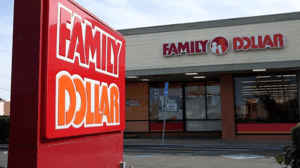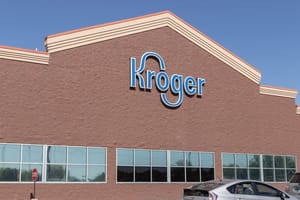UNFI Reels in Financial Targets but Stands Behind Strategy
Q4, fiscal year misses trigger a conservative reset. CEO Steven Spinner reflects on a "humbling year" for the transforming food distributor.

Officials of United Natural Foods Inc. (UNFI) confessed this week to having badly overestimated the financial effects of its 2018 acquisition of rival distributor Supervalu, but it stood behind the long-term strategic vision for the transformative combination.
“I think for us as a management team, 2019 was a humbling year,” UNFI CEO Steven Spinner said while reviewing the distributor’s fourth-quarter and fiscal year financial results in a conference call this week. “I mean it was a really hard year, and we’ve learned a lot. But at the end of the day, we believe that we have the ability to look around the corner to see what was coming and take action to ensure that the company had a long-term play and the ability to be the No. 1 player in the marketplace as the entire environment evolved.”
The $2.9 billion Supervalu deal, which combined the country’s leading natural foods distributor with one of the largest U.S. conventional distributors, has been described by UNFI as a “bet the company” transaction, positioning it to serve a food retailing business in the midst of a rapid transformation. But UNFI encountered more complexity than it expected absorbing the acquisition, primarily because Supervalu came with its own acquisition-related heartburn but also because of difficult industry conditions, Spinner said. Supervalu’s woes included incomplete integration of its own wholesale acquisitions, and its retail banners Shoppers Food and Cub Foods proving to be more difficult to sell than UNFI first imagined.
As a result, UNFI is now walking back 2022 financial targets announced during an investor conference in January, including its expectation of 3.6% annual sales growth and EBITDA growth of 7%.
“Fiscal 2019, which serves as the base for the subsequent years, was well below the expectations we set earlier,” interim Chief Financial Officer John Howard said this week. “So we don't believe we have a path to achieve the net sales or adjusted EBITDA dollar ranges for fiscal 2022 provided in January at our Analyst Day.”
UNFI declined to set specific targets at this time as it continues to await resolution on its planned retail divestitures—deals the company hopes to achieve early next year. Instead, Howard said, the company believes sales would grow at a compounded annual growth rate in the low single digits after fiscal 2020. EBITDA, he projected, would likely decline after the banner sales, then grow in the mid-single digits, albeit from a smaller base.
Spinner said UNFI had received interest from multiple potential buyers for its Shoppers Food outlets. The Lanham, Md.-based chain, now operating 44 stores in Maryland and Virginia, would likely be sold piecemeal by early next year, he said. UNFI still hopes to sell Minneapolis-based Cub Foods, which operates 101 stores in Minnesota and Illinois, as a single unit. The latter is the considerably more valuable asset, Spinner said, as pension liabilities overhang the Shoppers units.
Financial results for the fourth quarter, which ended Aug. 3, underperformed analyst expectations, with adjusted EBITDA ($166 million) and earnings per share (44 cents) falling slightly short of respective consensus figures of $168 million and 47 cents, respectively. Sales of $6.4 billion, an increase of 2.8% adjusted for the acquisition, also missed Wall Street expectations.
UNFI said quarterly comparable sales increased by 10.1% to its “supernatural” segment, which is primarily sales to Whole Foods Market, while sales to independent stores grew by 0.4%, supermarket sales fell by 0.9% and sales to other channels declined by 10%.
While overall sales were not as robust as planned, Spinner said UNFI’s top 25 customers saw combined quarterly sales growth of 5.4%, or 3.2% excluding Whole Foods. The laggards, he said, could stand to grow as the distributor pursues more cross-selling opportunities made possible by the integration of the natural and conventional sets and expansion of the “build out the store” strategy providing them more categories of goods such as fresh and specialty foods.
“We recognize the contrarian view is that UNFI serves a retail customer base that is challenged and will shrink over time,” Spinner said. “We understand concerns exist over how the evolving dynamics of e-commerce are impacting retail cost structures, the need to be price competitive and the need to invest capital back into the business. It’s likely that some of today's brick-and-mortar stores will close and some customers may not be operating in the same form five years from now. But what certain industry watchers may not fully appreciate is the demonstrated ability or creativity and ingenuity of our largest customers to adapt and even grow in this evolving landscape.”
About the Author
You May Also Like






